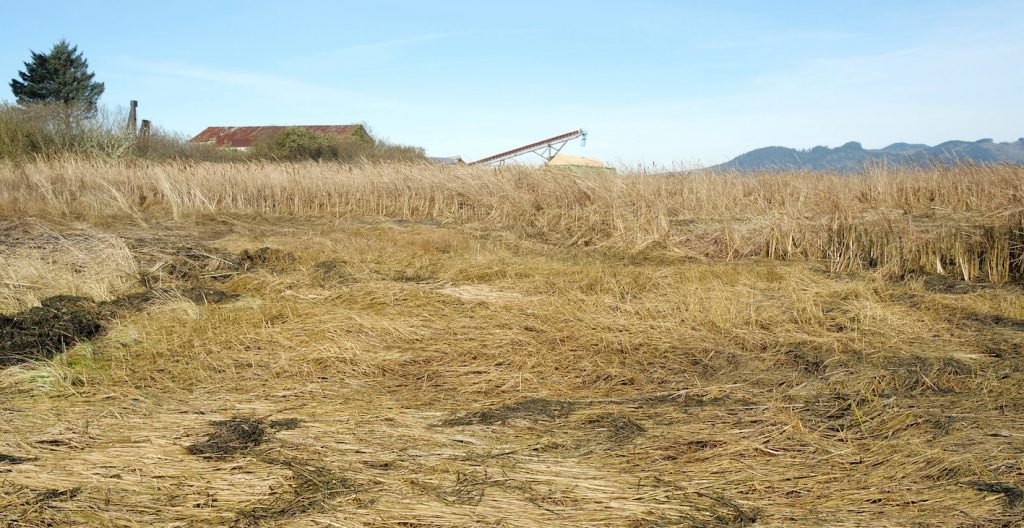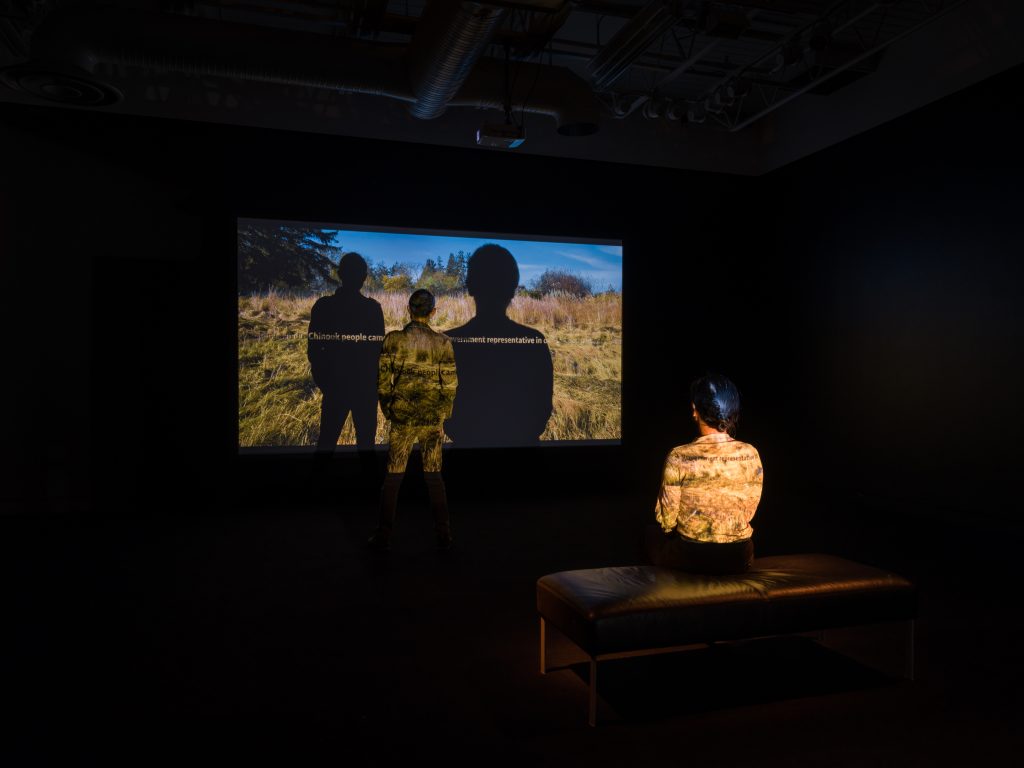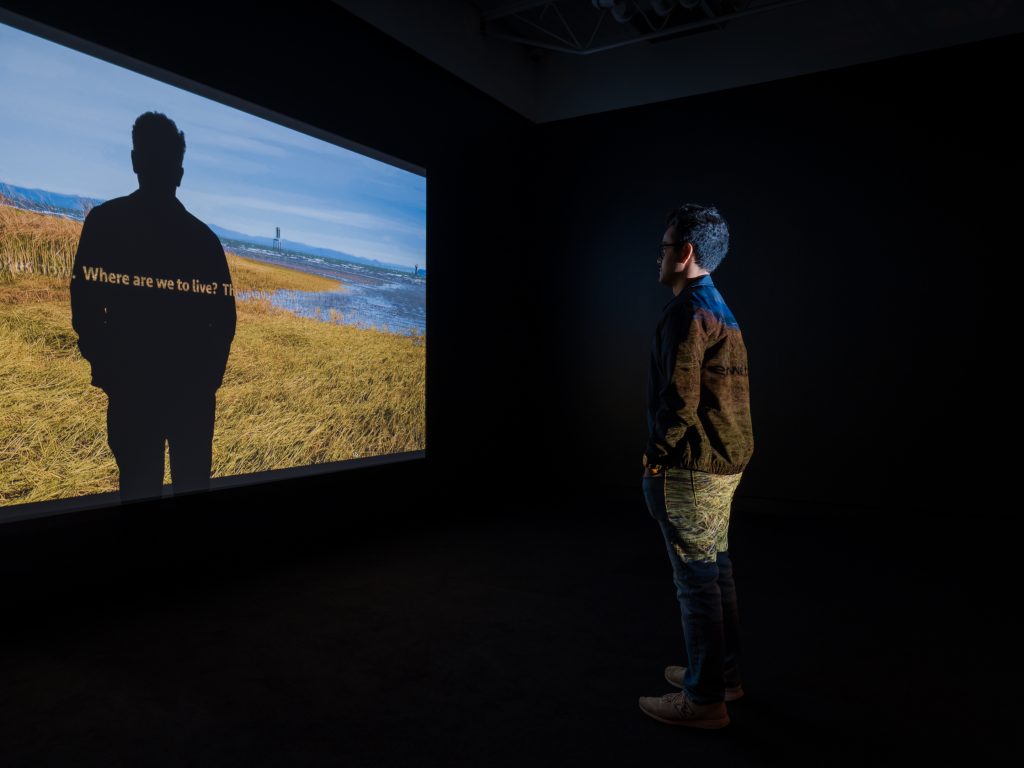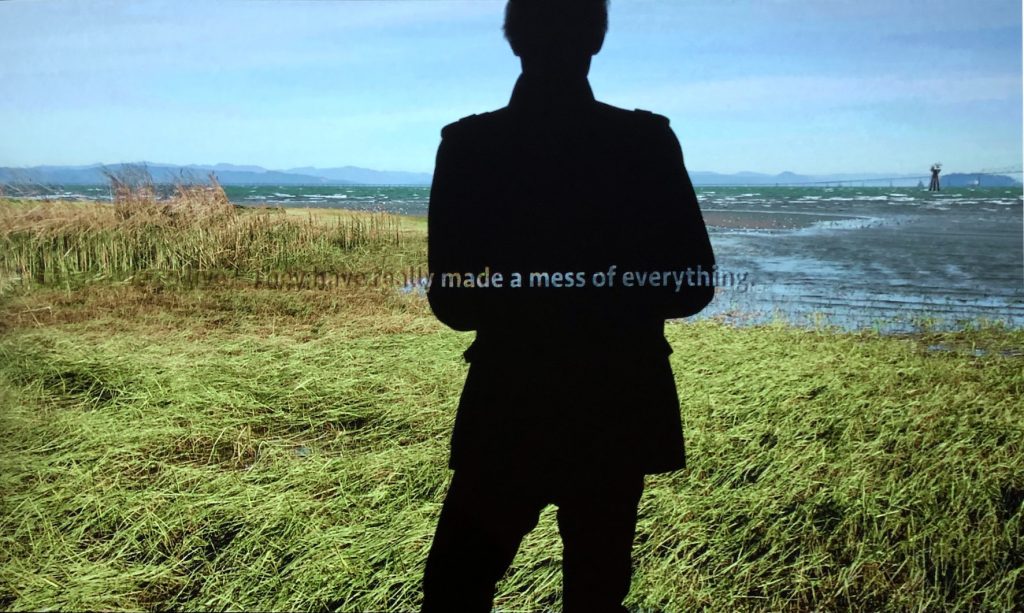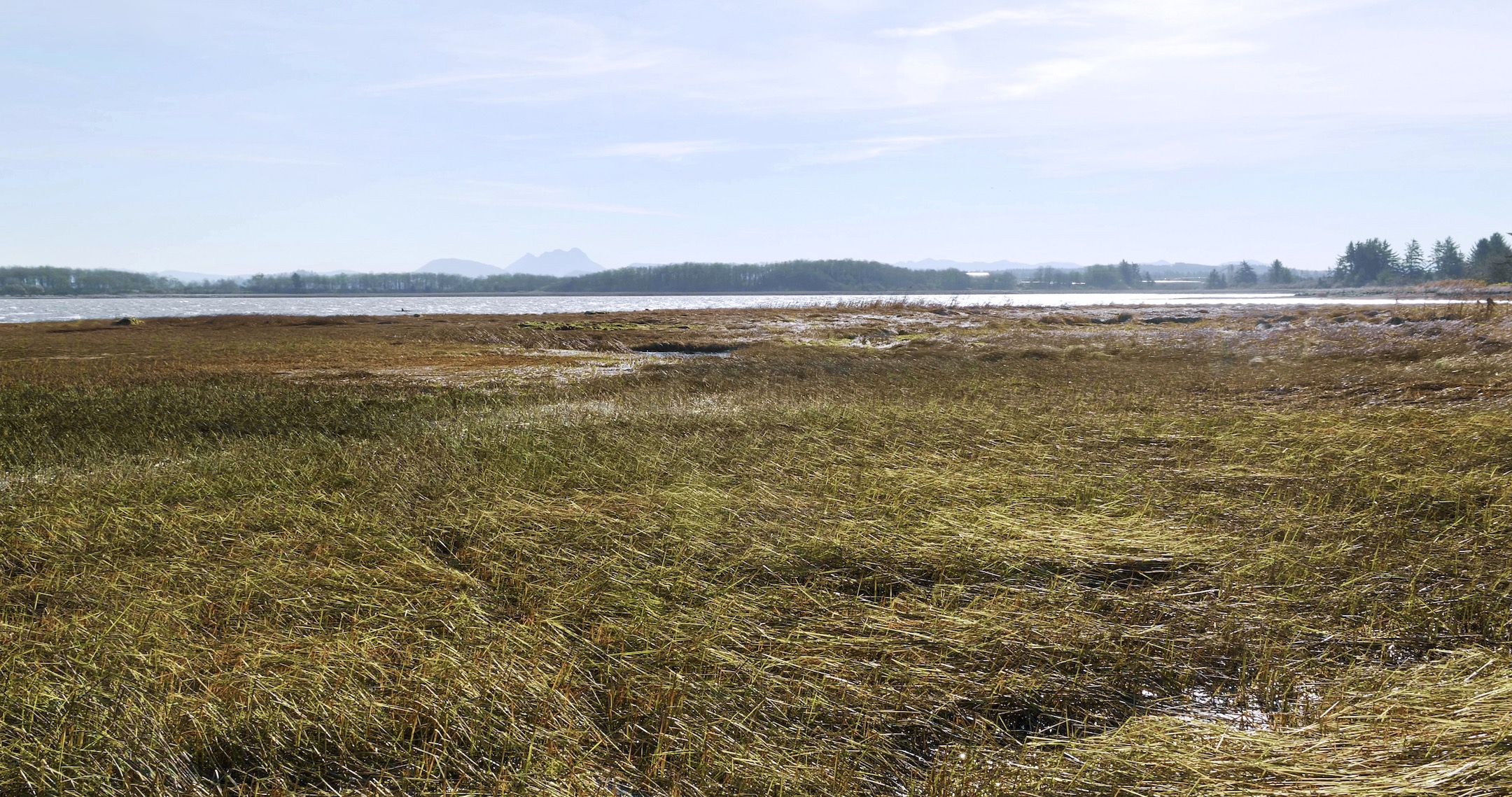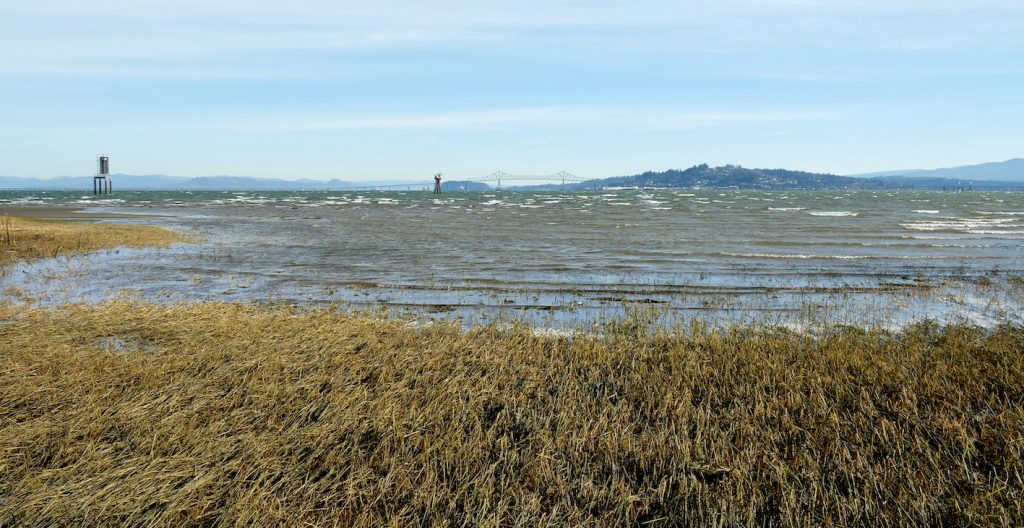
Tansy Point, 2019
Double projection, DCI 4k video, 5 min.
This video installation employs two projectors to create a singular image depicting the landscape surrounding Tansy Point. When a viewer walks in front of the projections, their shadow reveals an English translation of the text in the voiceover.
Tansy Point is located on the south shore near the mouth of the Columbia River that separates the states of Oregon and Washington. In 1851, the Superintendent of Indian Affairs for Oregon Territory, Anson Dart, camped here with an interpreter and met with leaders of the Chinook people, later known as the Lower Chinook, Wahkiakum, Willapa, Cathlamet, and Clatsop. They negotiated the right to remain on some of their traditional lands, to hunt, fish, farm and gather, to be buried among their ancestors, as well as the removal of certain settlers, in exchange for land. The federal government would build a permanent Indian agency, a manual labor school, a blacksmith shop, and a farm operation and provide annual payments in cash and goods. The Anson Dart Treaties were never ratified by Congress even though the land and rights of the Chinook people were taken away.
The treaty negotiations at the time would have been conducted in Chinook Jargon, a trade language that was the lingua franca along the west coast during the 19th and early 20th Century. This pidgin is based on the Chinook language, complemented with Nuu-chah-nulth from Vancouver Island, English and French, and was in common use from southern Alaska to northern California.
The voice in the video installation soundtrack is that of Tony Johnson, Chair of the Chinook Nation. He recalls, in Chinook Jargon, the signings of the treaties, the good faith into which they entered the discussions with the government, upholding their part of the bargain, and the impact of the other party not honouring theirs. He also describes, in Chinook Jargon, a translation of a text written by James Swan, an early white settler who witnessed other attempts at treaty making in Washington State by the US government and was critical of the process.
The Chinook are still fighting for recognition to this day.
Henry Tsang’s talk at Portland Art Museum
